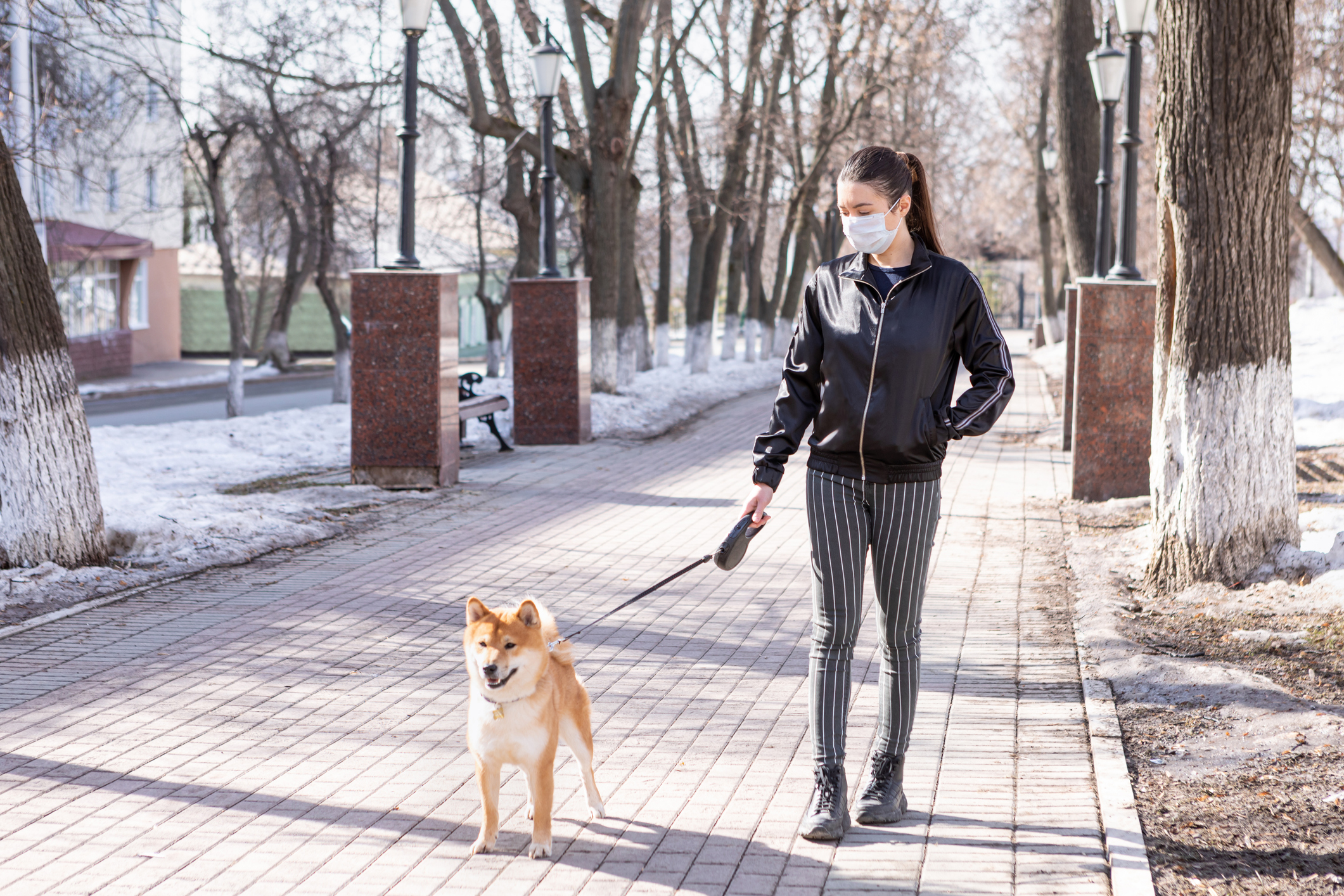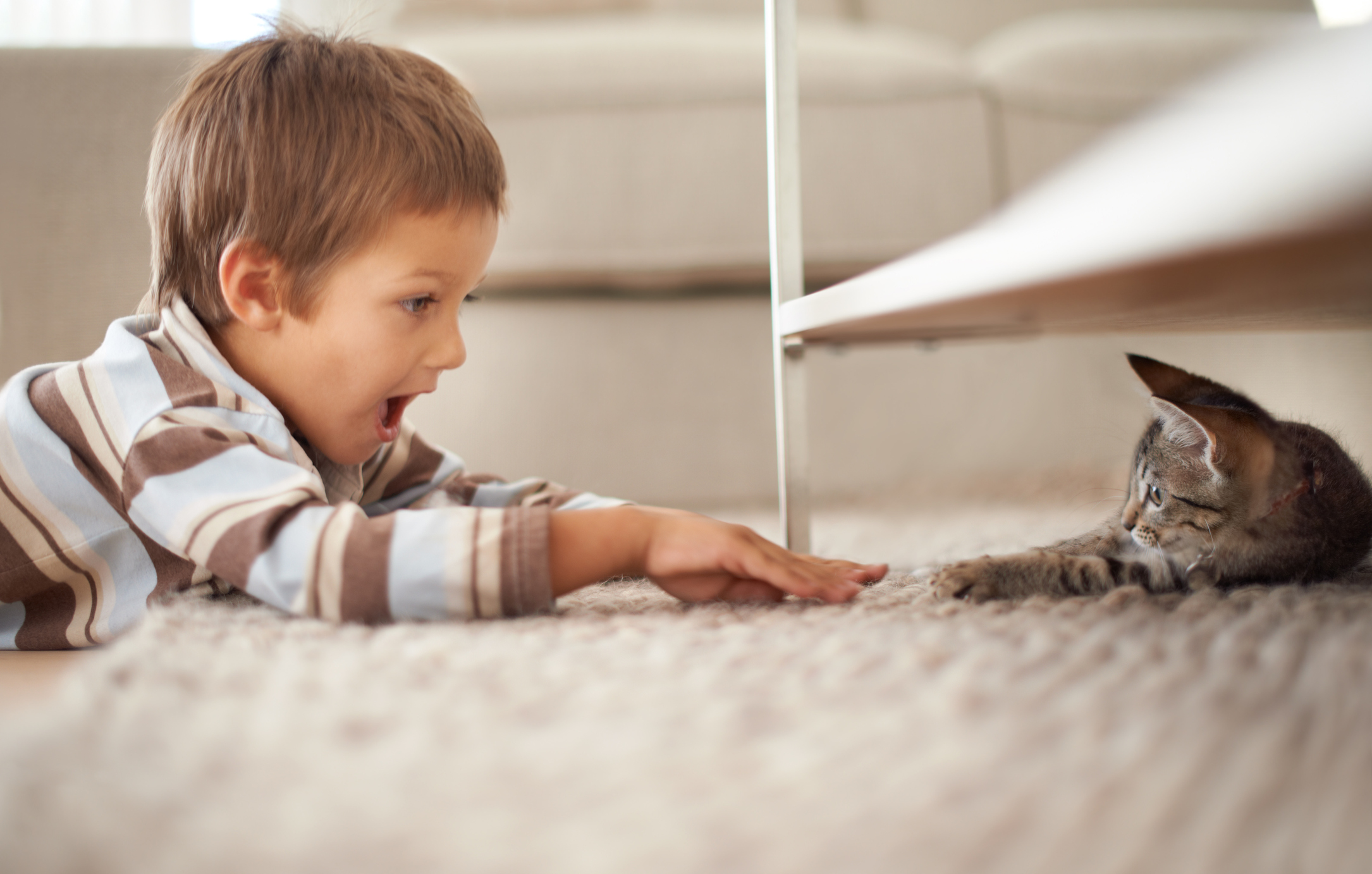
Help Your Pet Stress Less During Quarantine
During a global health crisis, our everyday lives are disrupted. As people work remotely, schools close and social events are cancelled, we are spending a lot more time than usual at home. While we may be going stir crazy ourselves, our pets are also likely to be affected by these changes—and not necessarily for the better!
Cats or dogs who are used to being alone at home all day are suddenly faced with more noise and less peace than normal. Although you might love to have extra cuddle time with your kitty or playtime with your pup, these abrupt changes can cause your pet to feel overwhelmed and stressed.
The last thing you want during this time of uncertainty is for your pet to act out or develop a health problem related to stress. Fortunately, there are some simple tips you can use to minimize your pet’s stress during quarantine.
- Maintain their daily routines: The most important thing you can do while social distancing at home is maintain your pet’s normal routine as much as possible. If you used to feed your pet at 7 a.m. before you left for work, get up at the same time to feed them. If you always take your pup for an afternoon walk or hold an evening play session, keep these routines consistent. Pets can have a difficult time adjusting to changes in routine, so mitigate as many changes as possible while they adjust to your constant presence.
- Adjust exercise and playtime: For dogs, in particular, the closure of dog parks, doggy day cares and indoor play centers can pose challenges to their daily exercise and socialization. Reduced exercise and playtime could bore pets and potentially lead to undesirable behavior. You may not have control over when your pup’s favorite dog park will reopen, but most regions are still allowing people to leave their homes to exercise with pets. Now is the time to improvise! Keep your dog busy and stimulated by introducing them to a new area of town or a local park you haven’t been to before. To minimize your time outside, play more indoor games and find new ways to challenge your pup mentally, such as puzzle toys or teaching them new tricks.

- Leave them alone: While you’re home all day, it might be tempting to seek your pet out to play or give them some extra snuggles. However, both dogs and cats value their alone time, too, and they’re probably used to your working hours being their favorite time for naps or birdwatching. Every pet is different, of course, but try to avoid searching for and bothering your pet if they aren’t looking for your attention. The extra pestering could stress them out. Make sure your pet has a safe space in your home where they can retreat to and remind your family members to leave this area alone.
- Keep children busy: Kids also have a habit of seeking out their furry friends to give them some less-than-gentle pats. With young children running around, your dog might become overwhelmed, or your cat might feel like their space has been invaded. If your child’s school has closed, try to keep children at home occupied or instruct them to leave your pets alone so they don’t become anxious.

- Take care of your stress: Pets are often able to pick up on human emotions, and high stress levels in the home could lead to high stress levels in your pets. In order to maintain a calm and happy environment for your furry friend, make sure you’re finding healthy ways to cope with your own stress. Minimize arguments in your household and keep things as light and hopeful as possible to maintain a happy atmosphere.
- Give them extra love when they want it: Pets who are stressed out by changes in routine might be extra cuddly or attention-seeking. If your kitty or pup is hanging around more than usual, give them a little extra TLC. Spend quiet time with them through brushing, quiet games or snuggles. Changes are hard for pets, but reassurance of your love and attention can help them cope more easily.
Keep an eye on your pet’s behavior throughout this period of social isolation. Watch for any signs of distress, including overgrooming, improper bathroom habits, hiding and aggression. If something seems amiss, reach out to your veterinarian to get advice on how to help your pet relax.
Additionally, once this crisis is over, be mindful of how you transition back to your pre-quarantine routine. After getting used to you being home all the time, another abrupt change could cause your pet even more stress or even the development of separation anxiety. Take changes slow and give your pets the adjustment periods they need.


